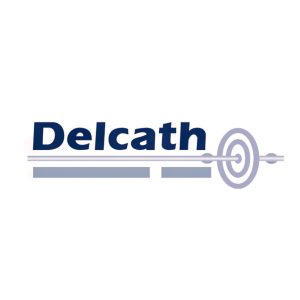Delcath Systems Announces Investigator-Initiated CHOPIN Clinical Trial Meets Primary Endpoint
Conference Call October 20, 8:45am EST
CHOPIN Trial Design
The investigator-initiated, prospective, randomized Phase 2 CHOPIN Trial was designed to compare the safety, tolerability, and efficacy of Delcath’s CHEMOSAT® Hepatic Delivery System (HDS) with melphalan for percutaneous hepatic perfusion (PHP) when used alone versus when combined with the systemic immune checkpoint inhibitors (ICI) ipilimumab and nivolumab. Patients with metastatic uveal melanoma (mUM) were randomized 1:1 to receive PHP alone or in combination with ipilimumab and nivolumab. CHEMOSAT is the device component of the
Ipilimumab and nivolumab are approved by the FDA and European Union for the treatment of unresectable metastatic melanoma, typically administered intravenously every three weeks for four doses, followed by maintenance nivolumab monotherapy every two to four weeks until disease progression.
The CHOPIN Trial randomized 76 patients 1:1 to receive PHP alone at weeks one and seven (PHP group) or four cycles of ipilimumab (1 mg/kg) and nivolumab (3 mg/kg) every three weeks over approximately nine weeks with
CHOPIN Trial Results
Key Results from the CHOPIN Phase 2 Trial:
-
Progression-Free Survival (
95% CI):-
One Year % (
95% CI)-
Combination group:
54.7% (36.8 - 69.5) -
PHP group:
15.8% (5.8 - 30.1)
-
Combination group:
-
Median months (
95% CI)- Combination group: 12.8 (9.2 - 15.4)
- PHP group: 8.3 (6.0 - 9.6)
- Hazard Ratio 0.34 (0.19 - 0.60)
- P<0.001
-
One Year % (
-
Overall Survival - (
95% CI):-
One Year % (
95% CI)-
Combination group:
82.8% (65.6 - 91.9) -
PHP group:
82.2% (64.5 - 91.6)
-
Combination group:
-
Two Year % (
95% CI)-
Combination group:
49.6% (29.3 - 67.0) -
PHP group:
22.1% (7.9 - 40.6)
-
Combination group:
-
Median: months (
95% CI)- Combination group: 23.1 (20.2 - 38.5)
- PHP group: 19.6 (15.2 - 21.8)
- Hazard Ratio: 0.39 (0.20 - 0.77)
- P = 0.006
-
One Year % (
-
Best Overall Response Rate (
95% CI):- Combination group: 76.3 (59.4 - 88.0)
- PHP group: 39.5 (24.5 - 56.5)
- P < 0.001
Grade 3 or higher treatment-related adverse events were more frequent in the combination group (
The abstract is available at ESMO Congress 2025 - Mini Oral Session LBA59.
“The CHOPIN trial clearly demonstrates that adding ipilimumab and nivolumab to PHP is both effective and tolerable. The efficacy results are impressive, especially when considering the treatment regime included only
A number of large, randomized clinical trials shows that patients with liver metastases typically have poorer outcomes than those with metastases elsewhere when treated with ICIs across multiple tumor types, including melanoma, non-small-cell lung cancer (NSCLC), urothelial carcinoma, and renal cell carcinoma1, 2. This diminished efficacy of ICIs has been attributed to the well-documented immunosuppressive nature of the liver microenvironment, with underlying mechanisms increasingly understood through preclinical and clinical research3.
“In addition to the potential immediate benefit to patients with metastatic uveal melanoma, the possible synergy of PHP and ICI therapy seen in the successful Phase 2 CHOPIN trial may be transferable to other cancers with liver-dominant disease, and Delcath looks forward to investigating that potential,” said Dr. Vojislav Vukovic, Chief Medical Officer of Delcath Systems.
Conference Call Information
Delcath Systems, Inc. will host a conference call and webcast on October 20, 2025, at 8:45 a.m. Eastern Time to discuss the Phase 2 CHOPIN Trial results and provide a brief overview of the financial results and guidance announced in this release. Joining Delcath management on the call with pre-recorded remarks will be Dr. Vincent T. Ma, Assistant Professor and Medical Oncologist at the University of Wisconsin Department of Medicine, a current user of HEPZATO KIT for the treatment of metastatic uveal melanoma patients, an expert in treating cutaneous melanoma, and a co-author on the seminal Nature Medicine paper exploring liver immune tolerance mechanisms in cancer.
To participate in this event, dial in approximately 5 to 10 minutes before the beginning of the call.
Event Date: Monday, October 20
Time: 8:45 AM Eastern Time
Participant Numbers:
Toll Free: 1-877-407-3982
International: 1-201-493-6780
Webcast: https://viavid.webcasts.com/starthere.jsp?ei=1738867&tp_key=6f3953dd75
A replay of the webinar will be available shortly after the conclusion of the call and will be archived on the company's website https://investors.delcath.com/news-events/events-and-presentations.
About Delcath Systems, Inc., HEPZATO KIT, and CHEMOSAT
Delcath Systems, Inc. is an interventional oncology company focused on the treatment of primary and metastatic liver cancers. The company’s proprietary products, HEPZATO KIT (HEPZATO (melphalan) for Injection/Hepatic Delivery System) and CHEMOSAT Hepatic Delivery System (HDS) for Melphalan percutaneous hepatic perfusion (PHP), are designed to administer high-dose chemotherapy to the liver while controlling systemic exposure and associated side effects during a PHP procedure.
In
In
Forward-Looking Statements
The Private Securities Litigation Reform Act of 1995 provides a safe harbor for forward-looking statements made by Delcath or on its behalf. This press release contains forward-looking statements, including statements regarding the possible synergy seen in the successful Phase 2 CHOPIN Trial being transferable to other cancers with liver-dominant disease; statements regarding the potential of CHEMOSAT Hepatic Delivery System and HEPZATO KIT to improve outcomes for patients with metastatic uveal melanoma and other cancers with liver-dominant disease; statements regarding the potential to drive increased adoption of HEPZATO KIT; statements regarding Delcath’s commitment to raising awareness of the innovative approach taken in the CHOPIN Trial, and accelerating the referral of patients to treatment sites; and statements regarding Delcath’s continued growth and leadership in liver-directed oncology, which are subject to certain risks and uncertainties, that can cause actual results to differ materially from those described. The words “anticipate,” “believe,” “continue,” “could,” “estimate,” “expect,” “intend,” “may,” “plan,” “potential,” “predict,” “project,” “should,” “target,” “will,” “would” and similar expressions are intended to identify forward-looking statements, although not all forward-looking statements contain these identifying words. Factors that may cause such differences include, but are not limited to, uncertainties relating to: the Company’s commercialization plans and its ability to successfully commercialize the HEPZATO KIT; contributions to adjusted EBITDA; the Company’s successful management of the HEPZATO KIT supply chain, including securing adequate supply of critical components necessary to manufacture and assemble the HEPZATO KIT; successful FDA inspections of the facilities of the Company and those of its third-party suppliers/manufacturers; the Company’s successful implementation and management of the HEPZATO KIT Risk Evaluation and Mitigation Strategy; the potential benefits of the HEPZATO KIT as a treatment for patients with primary and metastatic disease in the liver; the Company’s ability to obtain reimbursement for the HEPZATO KIT; and the Company’s ability to successfully enter into any necessary purchase and sale agreements with users of the HEPZATO KIT. For additional information about these factors, and others that may impact the Company, please see the Company’s filings with the Securities and Exchange Commission, including those on Forms 10-K, 10-Q, and 8-K. However, new risk factors and uncertainties may emerge from time to time, and it is not possible to predict all risk factors and uncertainties. Accordingly, you should not place undue reliance on these forward-looking statements, which speak only as of the date they are made. We undertake no obligation to publicly update or revise these forward-looking statements to reflect events or circumstances after the date they are made.
This release contains forward-looking statements, including statements regarding the expected release of clinical trial results, which are subject to risks and uncertainties. Factors that could affect these forward-looking statements include, but are not limited to, delays in the presentation of the data, or other unforeseen issues relating to the release of the clinical trial results. For a detailed discussion of these and other risks, please refer to Delcath’s filings with the SEC.
Citations for footnotes:
- Yu, J. et al. Liver metastasis restrains immunotherapy efficacy via macrophage-mediated T cell elimination. Nat Med 27, 152–164 (2021)
- Wang, F. et al. Pan-Cancer Analysis Identifies Liver Metastases as Negative Predictive Biomarker for Immune Checkpoint Inhibitors Treatment Outcome. Front Oncol 11:691853 (2021). doi:10.3389/fonc.2021.691853
- Li, L. et al. Liver metastases and the efficacy of immune checkpoint inhibitors in patients with advanced lung cancer: A retrospective study. Front Oncol 12:978069 (2022). doi:10.3389/fonc.2022.978069
View source version on businesswire.com: https://www.businesswire.com/news/home/20251018759712/en/
Investor Relations Contact:
ICR Healthcare
investorrelations@delcath.com
Source: Delcath Systems, Inc.







